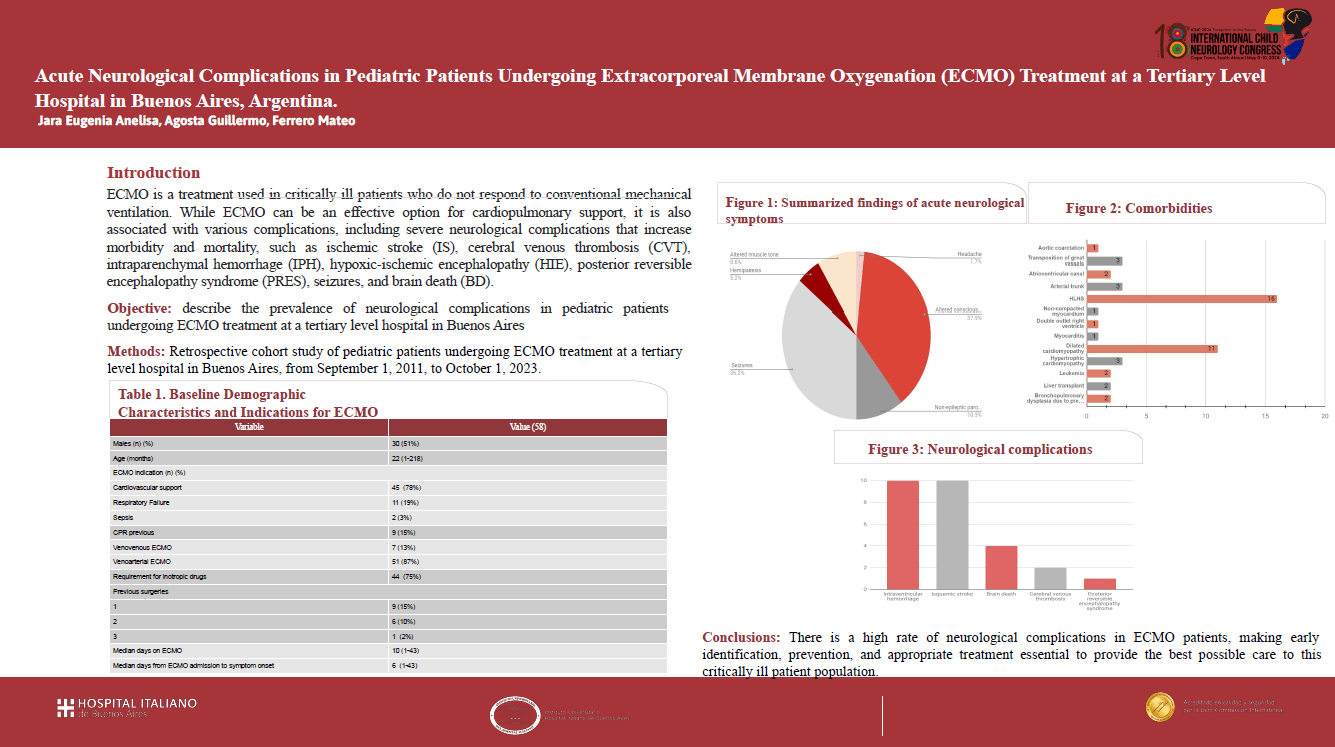A Rare Disease Masquerading As Periodic Paralysis In A Young Child: A Case Report
Introduction: ECMO is a treatment used in critically ill patients who do not respond to conventional mechanical ventilation. While ECMO can be an effective option for cardiopulmonary support, it is also associated with various complications, including severe neurological complications that increase morbidity and mortality, such as ischemic stroke (IS), cerebral venous thrombosis (CVT), intraparenchymal hemorrhage (IPH), hypoxic-ischemic encephalopathy (HIE), posterior reversible encephalopathy syndrome (PRESS), seizures, and brain death (BD). Objective: To describe the prevalence of neurological complications in pediatric patients undergoing ECMO treatment at a tertiary level hospital in Buenos Aires. Methods: Retrospective cohort study of pediatric patients undergoing ECMO treatment at a tertiary level hospital in Buenos Aires, from September 1, 2011, to October 1, 2023. Results: A total of 124 ECMO treatment episodes in 117 patients were included, with 102 (82%) being venoarterial and 22 (18%) venovenous. There were 58 (46%) acute neurological symptoms, including 1 patient with headache, 22 with altered consciousness, 6 with non-epileptic paroxysmal events, 21 with seizures, 3 with hemiparesis, and 5 with altered muscle tone. Among the complications, 10 patients had IS, 2 had CVT, 1 had PRES, 10 had intraventricular hemorrhage, 8 had IPH, and 4 patients were diagnosed with BD. Conclusions: There is a high rate of neurological complications in ECMO patients.
Eugenia Jara
Hospital Italiano de Buenos Aires
Argentina
Martin Hyland
Hospital Italiano de Buenos Aires
Argentina
Guillermo Agosta
Hospital Italiano de Buenos Aires
Argentina
